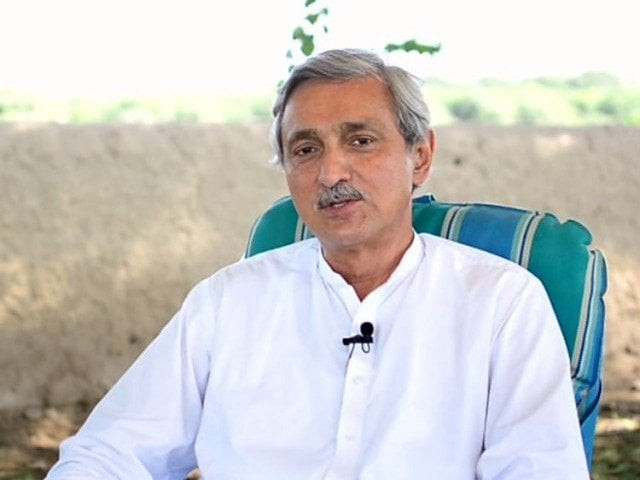Tareen challenges his disqualification
Says it was never his intention to conceal assets in nomination papers

PHOTO: FILE
The three-judge bench headed by Chief Justice of Pakistan Mian Saqib Nisar on December 15 disqualified Jahangir Tareen for concealing his assets under Article 62 (1) (f)of the Constitution.
The bench had declared that SVL, an off-shore company, was established by Tareen which has a legal title of the property measuring 12 acres known as ‘Hyde House’ but the actual, true, real and beneficial owner of the said property is Tareen.
Tareen indecisive to appeal disqualification
Now Tareen has filed a review petition against his disqualification. He also submitted a four-page affidavit, wherein he explained that he is not beneficial owner of the UK’s property and there was no dishonesty on his side. The copy of the affidavit is available with The Express Tribune.
“As the Trust was funded through remittances from Pakistan using official banking channels and was; therefore, in full knowledge of the State Bank of Pakistan, I say the question of concealment does not arise,” says the affidavit.
Tareen also said that it was his intention to remit the funds in compliance with the applicable laws and regulations and to make all necessary disclosures.
Imran escapes disqualification, Tareen ineligible for public office
“Since the remitted funds are from concealment thereof I say that in any event, there cannot be any concealment of tax paid funds remitted through official banking channels with the approval and knowledge of the State Bank of Pakistan and Federal Board of Revenue (FBR),” it adds.
“In my personal, financial and fiscal affairs I have endeavoured to adhere to the highest standards of compliance. I seek and act upon professional advice from competent practitioners who are considered leaders in their area of practice.”
It is submitted that Tareen has established the ‘Trust’, its funding and remittance on the basis of professional advice, which he still believes is correct and true.
Imran, Tareen D-Day today
Value of funds settled into the Trust has been consistently and fully disclosed since 2011 in the wealth statement of his children, who are ultimate beneficiaries.
“I have four children (three daughters and a son) all of whom are married and independent. The inclusion of myself and my spouse as discretionary lifetime beneficiaries in the settlement was a proactive measure only so as to preclude my children at least during the lifetime of the parents from liquidating the Trust and distributing and spending the proceeds, which I was advised could potentially be achieved if all discretionary beneficiaries unanimously demanded that of the Trustees.
Tareen says that he never wished, intended or planned for the dwelling held under the Trust to be transferred to himself or his spouse during his lifetime.
Lift entire crop or Sharif’s mills will be allowed crushing: SC tells Jahangir Tareen
“Since the English and Jersey law relating to the governing discretionary trust is an intricate and esoteric subject. My understanding was based on professional advice and my reading of settlement as a lay person, even not accepted by the Supreme Court would not and do not warrant a declaration of dishonesty on my part as the trust arrangement is legitimate and lawful recognised and valid structure and there was never any intent to mislead or conceal the trust from the court, my former constituents or from any revenue authorities or regulators and nor is there any evidence to the contrary to the record.”
Tareen also submitted some documents for the first time regarding the trust to establish that he is not beneficial owner of the property.
“These documents also prove that there has been any act or omission on neither my part nor any ulterior intent which would warrant declaration of dishonesty against myself.”



















COMMENTS
Comments are moderated and generally will be posted if they are on-topic and not abusive.
For more information, please see our Comments FAQ